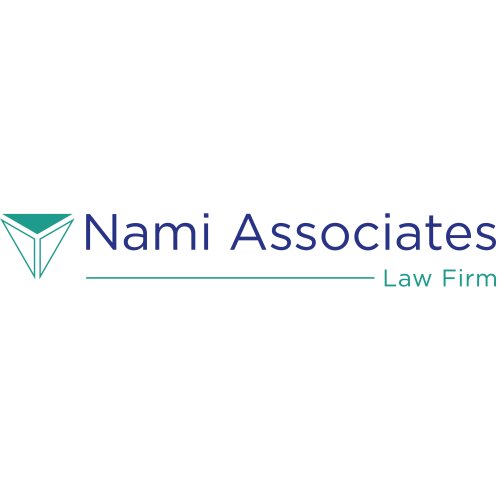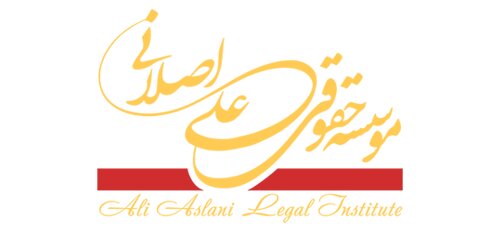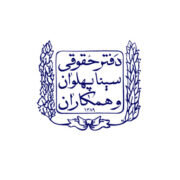Best Lawsuits & Disputes Lawyers in Tehran
Share your needs with us, get contacted by law firms.
Free. Takes 2 min.
List of the best lawyers in Tehran, Iran
About Lawsuits & Disputes Law in Tehran, Iran
Lawsuits and disputes in Tehran, Iran, generally involve legal conflicts that arise in various sectors such as business, employment, family, real estate, and more. The legal system in Iran is primarily based on Islam's Shia principles and operates under the civil law system influenced by the French legal model. Tehran, being the capital of Iran, serves as the central hub for many of the country's legal affairs, making access to the court system and legal services highly significant for residents and businesses alike. Understanding the nuances of local Iranian law, including civil procedures and dispute resolution processes, is crucial for anyone who finds themselves involved in or contemplating a legal dispute in Tehran.
Why You May Need a Lawyer
There are several scenarios in which you might require the assistance of a lawyer in Tehran, Iran, for lawsuits and disputes. Common situations include:
- Resolving commercial disagreements or breaches of contract.
- Addressing employment conflicts or unfair dismissal cases.
- Navigating family law issues, such as divorce or child custody.
- Handling property disputes, including land ownership and tenancy issues.
- Addressing personal injury claims or negligence cases.
- Negotiating settlements or engaging in alternative dispute resolution methods.
A lawyer specializing in lawsuits and disputes can provide legal advice, represent you in court, and help ensure that your rights are protected throughout the legal process.
Local Laws Overview
Key aspects of local laws in Tehran related to lawsuits and disputes include:
- Civil Procedure Code: Governs how civil cases are to be processed and tried. It outlines the time limitations, court protocols, and burden of proof requirements.
- Commercial Code: Specifies regulations for business-related disputes and commercial transactions, including contracts and trade practices.
- Family Law: Influenced by religious doctrines, these laws cover marriage, divorce, inheritance, and child custody, often requiring specific procedures for dispute resolution.
- Arbitration Law: Provides alternative means to settle disputes outside the court system, offering more privacy and efficiency.
- Property Laws: Manage aspects of real estate ownership, transfers, leases, and tenancy disputes, crucial for resolving land-related conflicts.
Frequently Asked Questions
What types of disputes are most common in Tehran?
Common disputes include contractual issues, family disputes, employment conflicts, commercial disagreements, and property disputes.
Is it mandatory to hire a lawyer for all legal disputes?
No, it is not mandatory to hire a lawyer, but it is advisable, especially when dealing with complex legal matters, to ensure your rights and interests are adequately represented.
How long does it typically take to resolve a dispute in Tehran?
The duration of resolving a dispute depends on the complexity of the case, court schedules, and negotiation efforts. Simple cases might conclude in a few months, while more complicated cases can take years.
What is the role of arbitration in resolving disputes?
Arbitration provides an alternative method to court litigation for resolving disputes. It is typically faster, confidential, and can be more cost-effective.
Can foreign nationals engage in lawsuits in Tehran?
Yes, foreign nationals can engage in lawsuits in Tehran, but they must comply with local laws and procedures and may require representation by an Iranian lawyer.
What should I expect during the initial consultation with a lawyer?
Your lawyer will evaluate the facts of your case, outline potential legal options, estimate costs, and advise you on the next steps to take.
Are there legal aid services available for individuals who cannot afford a lawyer?
Some non-governmental organizations and legal clinics may provide pro bono legal assistance or have programs to support those with financial constraints.
What evidence is necessary to support my case?
The evidence required can vary depending on the type of dispute but generally includes documents, photographs, witness statements, contracts, and correspondence.
How are court fees determined for lawsuits in Tehran?
Court fees in Tehran are determined based on several factors, including the type and complexity of the case, the court level, and the claim amount.
What is the appeals process like in Tehran's legal system?
The appeals process involves challenging a court's decision to a higher court and requires adherence to strict procedural rules and deadlines.
Additional Resources
For further assistance, you may consider contacting the following resources:
- Iranian Bar Association: Offers information and resources about legal practices and finding certified lawyers in Tehran.
- Judicial Organization of Tehran: Provides guidance on court services and judicial procedures.
- Legal Aid Centers: Offer pro bono services and assistance to individuals with limited financial means.
- Iran Chamber of Commerce: Could be helpful for resolving commercial disputes and seeking arbitration services.
Next Steps
If you require legal assistance in lawsuits and disputes in Tehran, follow these steps:
- Identify the nature of your legal matter and gather necessary documentation.
- Research and contact a qualified lawyer specializing in the relevant field of law.
- Arrange an initial consultation to discuss your case and receive preliminary legal advice.
- Consider alternative dispute resolution options, such as mediation or arbitration if appropriate.
- Prepare for potential court proceedings, guided by your lawyer's expertise and recommendations.
Engaging with a knowledgeable legal professional can significantly impact the outcome of your case and help you navigate the complexities of the legal system in Tehran.
Lawzana helps you find the best lawyers and law firms in Tehran through a curated and pre-screened list of qualified legal professionals. Our platform offers rankings and detailed profiles of attorneys and law firms, allowing you to compare based on practice areas, including Lawsuits & Disputes, experience, and client feedback.
Each profile includes a description of the firm's areas of practice, client reviews, team members and partners, year of establishment, spoken languages, office locations, contact information, social media presence, and any published articles or resources. Most firms on our platform speak English and are experienced in both local and international legal matters.
Get a quote from top-rated law firms in Tehran, Iran — quickly, securely, and without unnecessary hassle.
Disclaimer:
The information provided on this page is for general informational purposes only and does not constitute legal advice. While we strive to ensure the accuracy and relevance of the content, legal information may change over time, and interpretations of the law can vary. You should always consult with a qualified legal professional for advice specific to your situation.
We disclaim all liability for actions taken or not taken based on the content of this page. If you believe any information is incorrect or outdated, please contact us, and we will review and update it where appropriate.
Browse lawsuits & disputes law firms by service in Tehran, Iran
Tehran, Iran Attorneys in related practice areas.
















